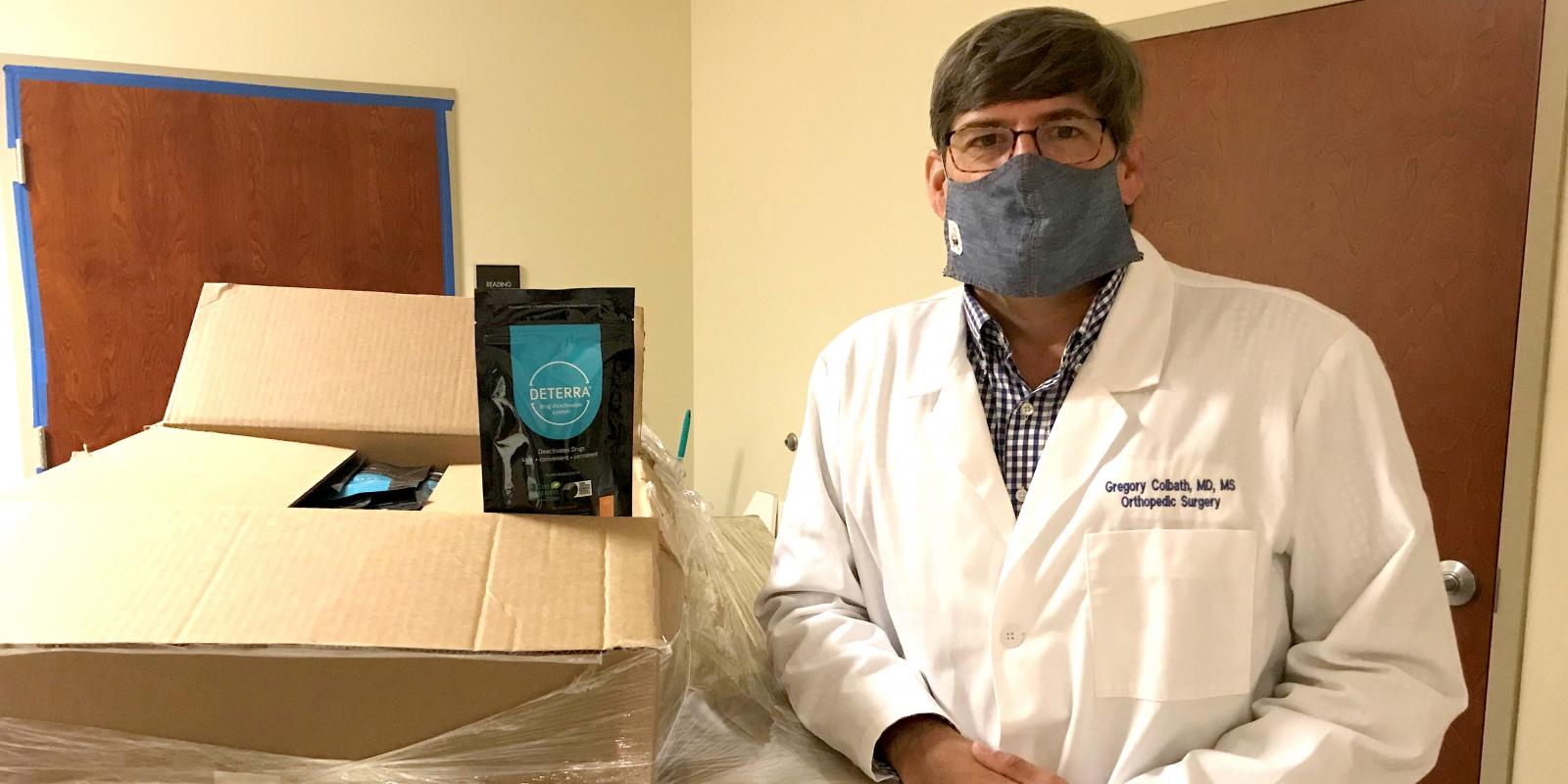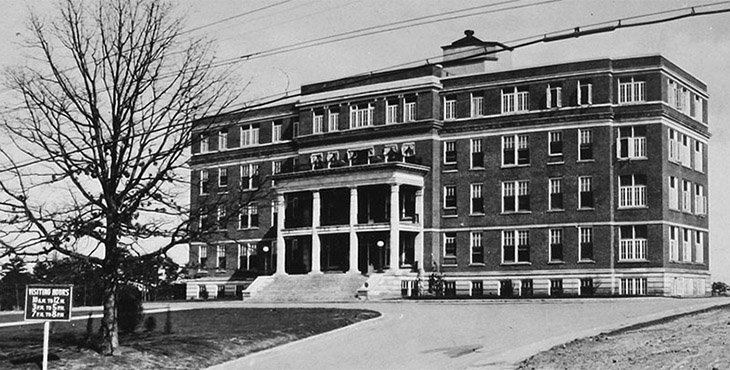Leading our Community in Medical Developments
Our providers use innovative procedures and techniques to improve patients' lives. Learn more about each below.
BackTable Podcast features Dr. Ari Kramer
Dr. Ari Kramer was recently a guest on the BackTable VI Podcast with Dr. Chris Beck. In episode 292, titled “Dialysis Interventions with Drug-Coated Balloons, Covered Stents and More,” they discuss Dr. Kramer's management of arteriovenous (AV) access for dialysis patients, the differences between options available today, and the importance of staying up-to-date on advancements for the best treatments based on patient and practice context.
Eat, Sleep, Console (ESC)

Dr. Jaime Brown, a pediatrician at Spartanburg Medical Center – Center for Pediatrics, is leading a team to track data and work with families on providing non-pharmacologic interventions to validate research that is improving patient outcomes in newborns.
The Eat, Sleep, Console (ESC) approach provides an organized, systematic way of assessing an infant’s opioid withdrawal severity based on how well an infant can eat, sleep and be consoled.
As part of the national sample, Dr. Brown's research and participation in the ESC approach showed how the care can be replicated effectively and safely throughout the country. Dr. Brown credits the work of hospital associates to track data and work with families on providing non-pharmacologic interventions to validate the research and improve patient outcomes in newborns.
CyberKnife M6

Dr. Daniel Fried directs the CyberKnife facility at Gibbs Cancer Center – Pelham, which is the only facility in the Upstate to offer the form of radiation therapy.
CyberKnife M6 is a noninvasive, full-body radiation system that uses advanced imaging and robotics to treat tumors with unrivaled precision.
Dr. Fried and his team of radiation oncologists use CyberKnife to treat malignant lesions and benign conditions such as trigeminal neuralgia, meningioma and acoustic neuromas.
InSpace Device

Dr. Gregory Colbath, an orthopaedic surgeon at Medical Group of the Carolinas – Skylyn, uses a balloon implant called InSpace as an innovative tissue-spacer system that restores motion and relieves the pain of a torn rotator cuff.
Dr. Colbath was the first surgeon in South Carolina to use the InSpace implant. He is a pioneer in utilizing minimally invasive surgeries and finding alternative treatments for pain management to reduce the use of prescription opioids.
Ellipsys Vascular Access System
Dr. Ari Kramer from the Medical Group of the Carolinas – Vascular Access Services – Spartanburg introduced the Ellipsys Vascular Access System to Spartanburg Regional Healthcare System. This groundbreaking, minimally invasive technology promises enhanced outcomes for dialysis patients.
A pioneer in this domain, Spartanburg Regional Healthcare System was among the first to adopt this innovation, with Dr. Kramer leading the charge. Notably, Spartanburg Medical Center ranks among four elite training hubs nationwide for this system.
SpaceOAR

Dr. Daniel Fried, a radiation oncologist at Gibbs Cancer Center – Pelham, uses the SpaceOAR® system for men undergoing prostate cancer radiation.
The simple procedure is done in an operating room at the same time radiation markers are placed in the prostate.
Most patients report that they have little or no discomfort from the procedure and cannot feel the spacer at all.
Fried, MD, PhD, became the first trained and certified physician in the Carolinas to use SpaceOAR. His experience and expertise have given Gibbs Cancer Center the distinction of being the first SpaceOAR National Education & Resource Center in the U.S.
ECMO
Dr. Ronald Figura, a cardiothoracic surgeon at Spartanburg Medical Center, is using an advanced life support system for significant medical emergencies when conventional life-support systems like a ventilator are not enough.
The Extracorporeal (meaning “outside the body”) Membrane Oxygenation, or ECMO, system stands in the gap for patients on life-support by taking blood from their bodies, oxygenating it, removing carbon dioxide and returning the blood to the body.
Dr. Figura and Jennifer Appling, a registered nurse and ECMO coordinator at SMC, are using this highly specialized treatment to help patients after catastrophic events like heart or lung failure.
VasQ Procedure

Dr. Ari Kramer, director and principal surgeon of vascular access surgery at Spartanburg Medical Center, successfully performed the first U.S. implantation of the VasQ device. The procedure represents a pivotal advancement in vascular access procedures in the U.S. VasQ, developed by Laminate Medical Technologies, is the only approved product designed to assist surgical fistula success from the point of creation. The recent implantation at Spartanburg Medical Center was the first VasQ procedure since FDA De Novo was granted.
Opioid Disposal

Spartanburg Regional orthopaedic surgeon Gregory Colbath, MD, provides his patients with a specially designed bag for the disposal of any unused painkillers. Dr. Colbath practices at Medical Group of the Carolinas – Orthopaedics – Skylyn. Created by a company called Deterra, the bags include a charcoal packet that, when mixed with warm water, breaks down and deactivates the medicine.















